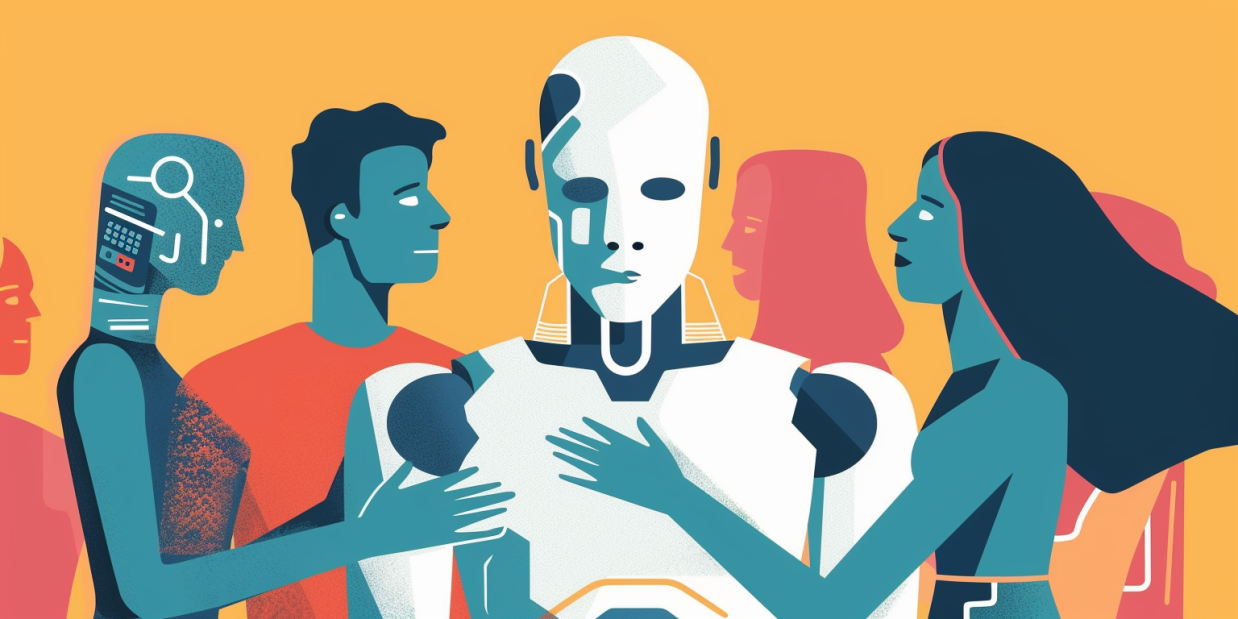The AI Skills Gap: Preparing the Workforce of Tomorrow
Learn the must-have skills for success in an AI-driven economy. From technical know-how to critical thinking and emotional intelligence, master the AI skills and get ready for the future job market. Find out more on our blog.
Get referred to your dream company
Sections
The rapid integration of Artificial Intelligence (AI) across various industries is not just transforming the way businesses operate; it's reshaping the skills required from the workforce. As AI technologies advance, a significant skills gap is emerging—a divide between the capabilities that workers currently have and those they will need to thrive in an AI-driven economy. This blog post delves into the essential skills workers need to develop to stay relevant and seize opportunities in the evolving job market.
Understanding the AI Skills Gap
The AI skills gap refers to the disparity between the demand for AI-related skills in the job market and the supply of professionals equipped with those competencies. This gap is widening as more companies adopt AI, machine learning, and automation technologies but struggle to find talent with the necessary expertise. Addressing this gap is crucial for both individuals seeking to remain competitive in the job market and organizations aiming to harness AI's full potential.
Essential Skills for the AI-Driven Economy
1.
Understanding AI and Machine Learning Concepts:
Familiarity with basic AI principles, algorithms, and machine learning models is foundational.
Programming Skills:
Proficiency in programming languages like Python, R, and Java, which are commonly used in AI development.
2.
Data Literacy:
The ability to interpret, manage, and analyze data sets is crucial, as AI technologies rely heavily on data to make decisions.
Statistical Analysis:
Understanding statistical methods and tools is essential for making sense of complex data and deriving insights.
3.
AI can process and analyze data, but human intervention is often required to formulate hypotheses, define problems, and devise creative solutions. Critical thinking enables professionals to evaluate AI outputs critically and apply them effectively.
4.
As AI becomes more pervasive, ethical considerations and the responsible use of AI are gaining importance. Understanding AI's societal impacts, bias, and fairness is crucial for developing and deploying AI technologies ethically.
5.
While AI can replicate many human tasks, it cannot emulate human empathy, emotional intelligence, and the nuanced understanding of social contexts. Skills such as empathy, communication, and teamwork remain uniquely human and are increasingly valuable.
6.
The field of AI is rapidly evolving, making continuous learning and adaptability essential. Staying updated with the latest technologies, tools, and practices is crucial for remaining relevant in the job market.
Preparing for the Future
Investing in Education and Training
Governments, educational institutions, and businesses must collaborate to develop curricula and training programs that address the AI skills gap. This includes integrating AI and data science courses into academic programs, providing professional development opportunities, and offering online courses and bootcamps to widen access to AI education.
Fostering a Culture of Continuous Learning
Organizations should encourage a culture of continuous learning, where employees are motivated to acquire new skills and adapt to changing technologies. This can be facilitated through mentorship programs, workshops, and access to learning resources.
Addressing Ethical and Societal Implications
As we prepare the workforce for an AI-driven economy, it's also important to consider the ethical and societal implications of AI technologies. This includes fostering a dialogue about AI's impact on society, ensuring inclusive and equitable access to AI education, and promoting responsible AI use.
Conclusion
The AI skills gap presents both a challenge and an opportunity for the workforce of tomorrow. By identifying and developing the essential skills needed in an AI-driven economy, individuals can enhance their employability and navigate the future job market with confidence. Simultaneously, organizations can benefit from a skilled workforce capable of leveraging AI technologies to drive innovation and growth.
Addressing the AI skills gap requires a concerted effort from individuals, educators, businesses, and policymakers. Through investment in education and training, fostering a culture of continuous learning, and addressing ethical considerations, we can prepare the workforce for the exciting opportunities that AI and automation bring to the forefront of the global economy. The journey towards bridging the AI skills gap is not just about staying relevant; it's about shaping a future where technology and human ingenuity work hand in hand to create a better world.
Your career is worth investing in.
Get unlimited referrals with Premium.
Community
© 2025 Crucible Fund LLC. All rights reserved.
